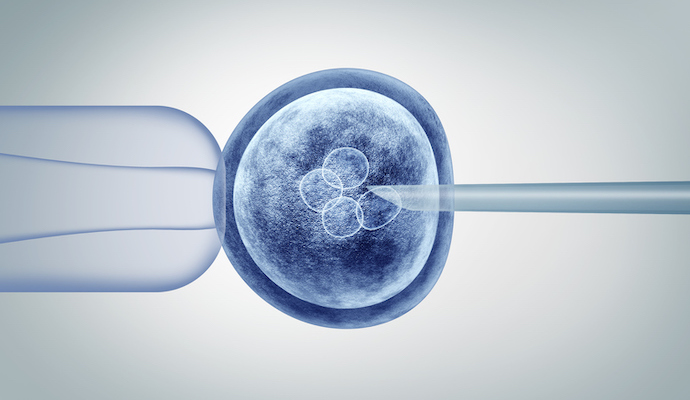CRISPR Technology Detects COVID-19 From Respiratory RNA Extracts
New CRISPR- technology detects COVID-19 from respiratory RNA extracts, enabling point-of-care testing outside of the clinical diagnostic laboratory.

Source: Thinkstock
- The lack of rapid and accurate molecular diagnostic testing has impeded the healthcare system’s response to the COVID-19 pandemic. Recently, researchers developed rapid, easy-to-implement, and accurate CRISPR-Ca12-based assay for detection of SARS-CoV-2 from respiratory swab RNA extracts.
For more coronavirus updates, visit our resource page, updated twice daily by Xtelligent Healthcare Media.
Over the years there have been viruses such as HIV, SARS, MERS, and most recently SARS-CoV-2, which have greatly affected individuals globally. COVID-19 has infected over 1.2 million individuals and caused over 65,000 deaths worldwide.
Although blood tests are rapid, their utility may be limited for diagnosis of acute SARS-CoV-2 infection because it may take weeks following the start of symptoms for a patient to develop a detectable antibody response.
To accelerate clinical diagnostic testing for COVID-19 in the US, FDA permitted individual clinically licensed laboratories to report the results of in-house-developed SARS-CoV-2 diagnostic on February 28, 2020.
The development and initial validation of a CRISPR–Cas12-based assay, called SARS-CoV-2 DNA Endonuclease-Targeted CRISPR Trans Reporter (DETECTR), was validated using contrived reference samples and clinical samples from patients in the US, including 36 patients with COVID-19 and 42 with other viral respiratory infections, researchers reported.
Researchers first designed primers targeting the E (envelope) and N (nucleoprotein) genes of SARS-CoV-2. Next, they designed Cas12 gRNAs to detect three bat SARS-like coronavirus and SARS-CoV-2 in the E gene and specifically detect only SARS-CoV-2 in the N gene.
Additionally, using synthetic, in vitro-transcribed SARS-CoV-2 RNA gene targets, researchers demonstrated that CRISPR–Cas12-based detection can distinguish SARS-CoV-2 with “no cross-reactivity for related coronavirus strains using N gene gRNA and with expected cross-reactivity for E gene gRNA.”
The DETECTR assay is positive if there is detection of both the E and N genes, or presumptive positive if there are captured in the first detection line (LOD).
Researchers then tested extracted RNA from 11 respiratory swab samples collected from six potential COVID-19 patients and 12 swab samples from patients with influenza and common seasonal coronavirus infections using SARS-CoV-2 DETECTR assay.
SARS-CoV-2 was detected in nine of 11 patient swabs and did not cross-react with other respiratory viruses. Two negative swabs from COVID-19 patients were confirmed to be below the LoD.
Using a fluorescence-based read-out, researchers tested an additional 60 swab samples from patients with respiratory infections from SARS-Co-V-2 using DETECTR. Out of 60 samples, 30 were positive for COVID-19 and 30 were negative.
Researchers noted that the positive predictive agreement and negative predictive agreement of SARS-CoV-2 DETECTR relative to CDC assay were 95 percent and 100 percent, respectively, for detection of the coronavirus in 83 total respiratory swab samples.
“Tests such as the DETECTR assay reported here are amenable to periodic repeat testing of patient samples. Clinical validation of this assay in response to recent draft guidance from the US FDA8 is ongoing in a Clinical Laboratory Improvement Amendments (CLIA)-certified microbiology laboratory,” researchers stressed.
“We report that our CRISPR-based DETECTR technology can be reconfigured within days to detect SARS-CoV-2. The future development of portable microfluidic-based cartridges and lyophilized reagents to run the assay could enable point-of-care testing outside of the clinical diagnostic laboratory, such as airports, local emergency departments and clinics and other locations.”
